8 Natural Ways to Lower Histamine
If you suffer from symptoms of high histamine like hives, headaches, or runny nose, you’ll be interested to read these eight ways you can naturally lower histamine in this body. From diet choices to supplements and other lifestyle practices, learn how to clear histamine from the body to relieve symptoms.
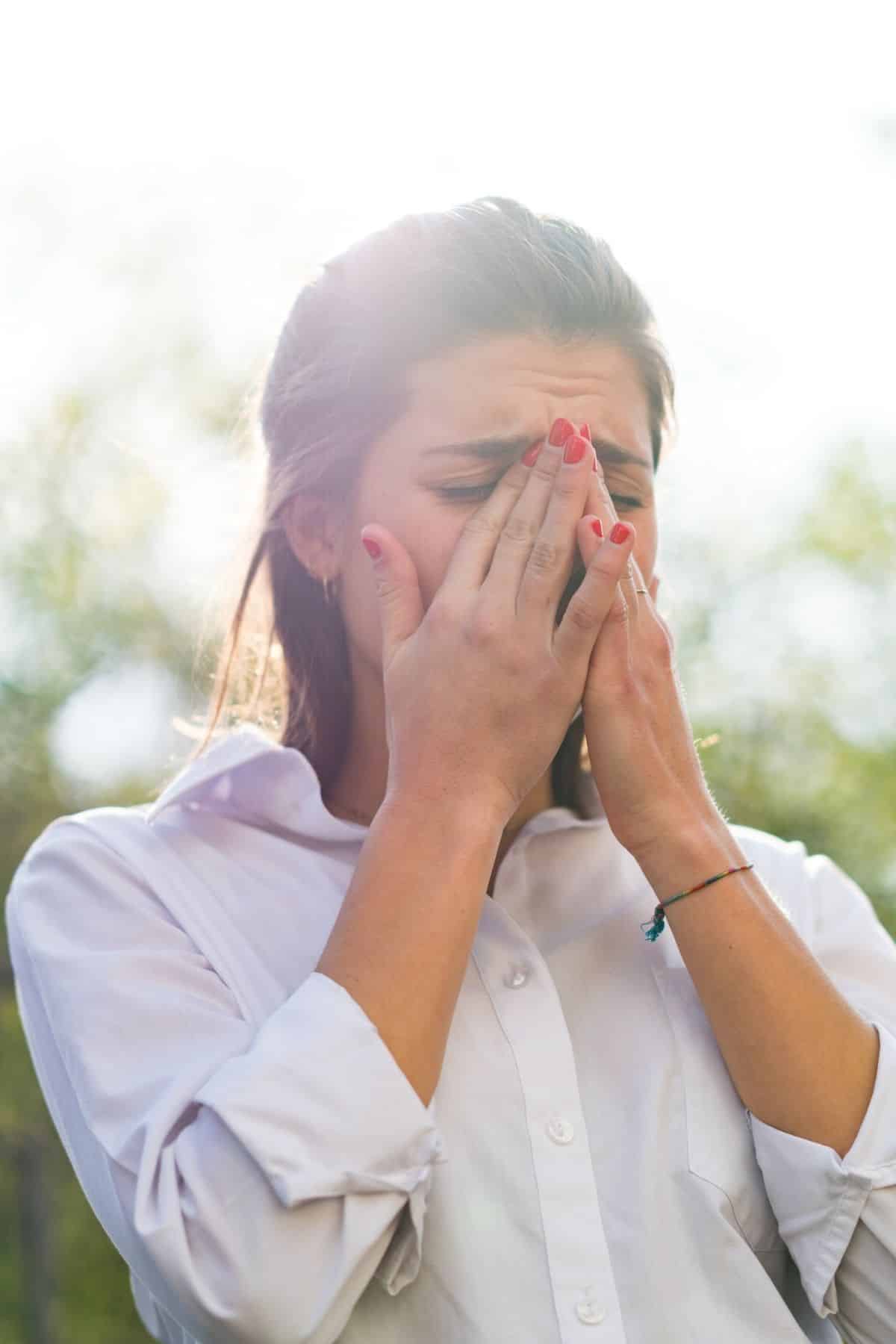
What is Histamine?
When you read the word histamine, you probably immediately associate it with antihistamine, which is an over-the-counter drug for allergy sufferers. However, histamine is not inherently bad. In fact, it’s your body’s way of letting you know you’re reacting to something in your environment or something you consumed.
Histamine is a chemical released by cells in your immune system when you encounter an allergen. White blood cells in the lungs have also been shown to release histamine.
Histamine becomes a problem when it’s constantly elevated and leads to ongoing symptoms, including:
- itchy, puffy, red, or watery eyes
- runny or swollen nasal passages
- sneezing or coughing
- and even swelling or rashes
Some people also have histamine intolerance, which occurs when too much histamine in your body can’t be broken down. Histamine intolerance presents in a wide range of symptoms that usually can’t be attributed to anything else, such as headaches, dizziness, facial swelling, fatigue, trouble sleeping, and more.
Luckily, there are natural steps you can take to lower your histamine levels! You may also want to check out my list of the best natural antihistamine foods and the best supplements for dry eyes.
Tips to Lower Histamine Naturally
1. Follow a low-histamine diet
One of the most common causes of histamine intolerance is the overconsumption of high histamine foods. Often, you aren’t even allergic to these foods. They simply have higher levels of naturally-occurring histamine that trigger your body’s own histamine response.
Follow a low histamine diet that eliminates high histamine foods and calms your body’s inflammation. Incorporate fresh foods like fruits and vegetables (avoiding high histamine ones), fresh meat and seafood, and whole grains.
Avoid histamine-rich foods including citrus fruits, aged meats, and more (see tip #6 for more foods with a high amount of histamine).
See my entire clean eating food list for food inspiration. You may also like this article on how to cut back coffee since it has been shown to increase histamine in the body.
You may also need to cut back on added sugars as they can be inflammatory and make your symptoms worse. See my tips for how to go sugar-free.
Lastly, if you are decide to follow a low histamine diet, you’ll also want to check out this list of the best low histamine snacks.
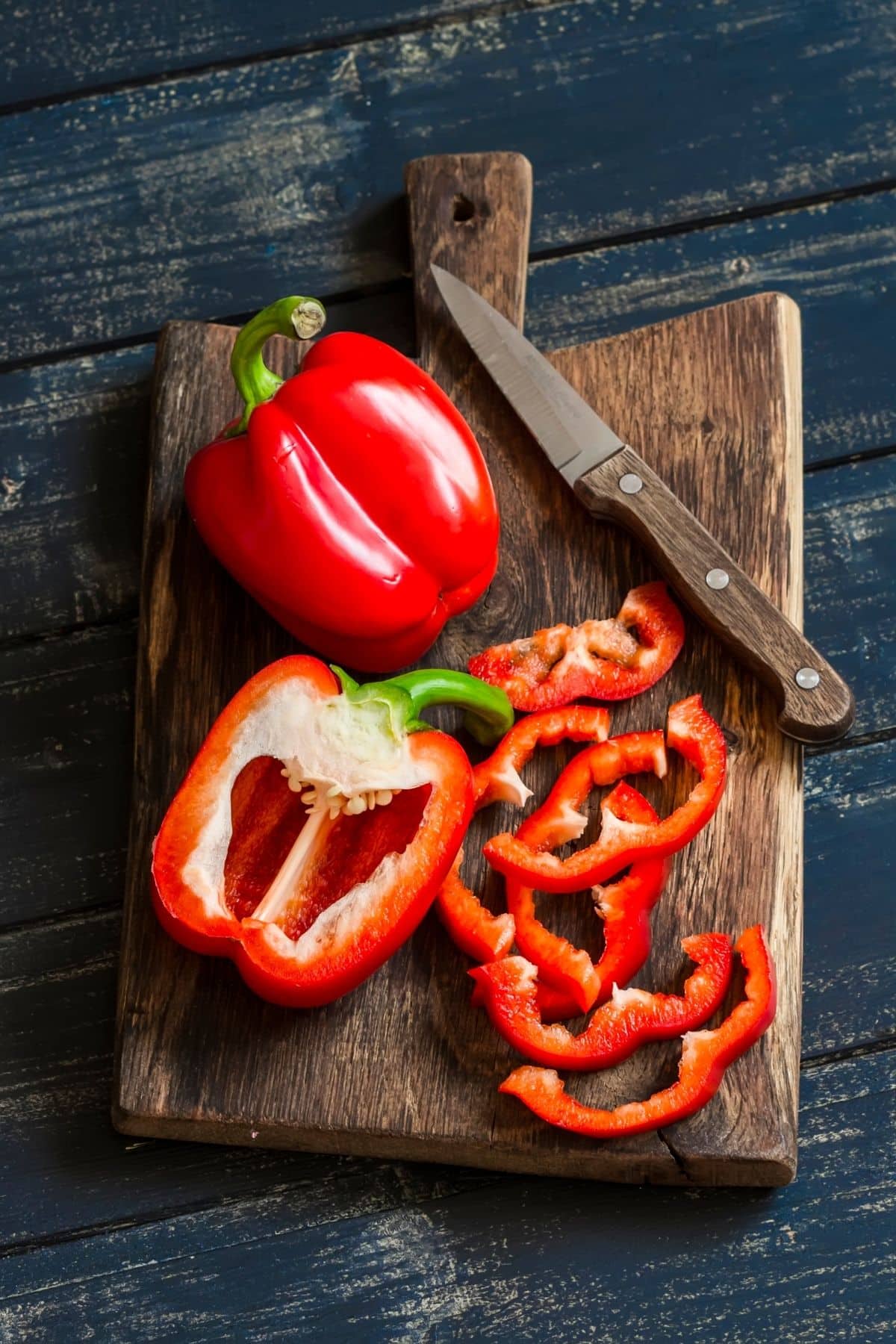
2. Use an air purifier
Using an air purifier is an excellent way to decrease your exposure to irritating allergens and toxins in your environment. Air purifiers take in the air in your environment and filter histamine-causing allergens like pet dander, dust, pollen, and mold spores.
Investing in a high-quality air purifier with a HEPA filter will ensure that your home environment won’t trigger a histamine reaction.
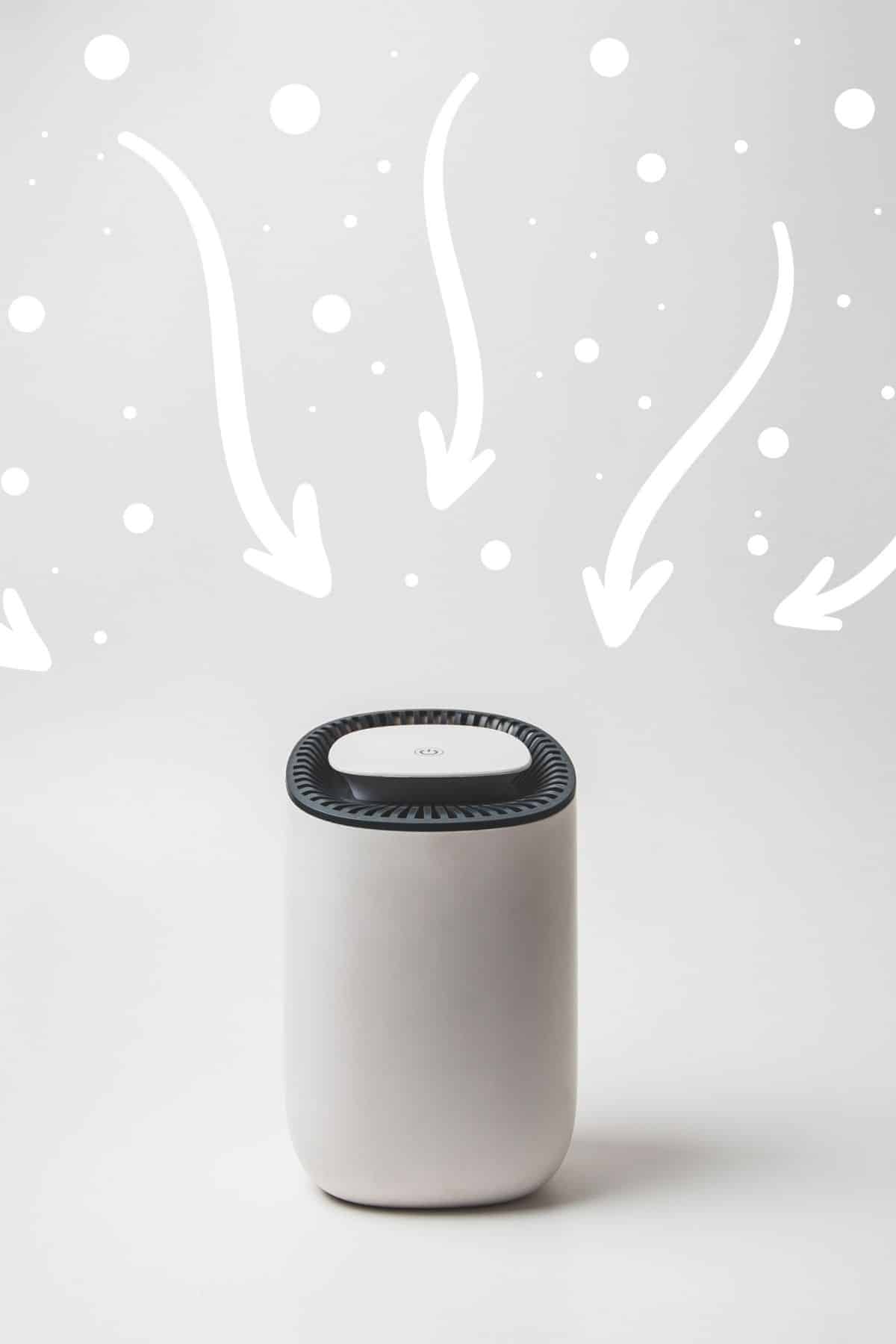
3. Reduce pollen exposure and wash your hair before bed
Pollen is one of the most common aggravators for histamine release. Sensitive individuals breathe in pollen, which causes histamine release in the body. Known as hay fever or seasonal allergies, pollen can actually irritate you year-round depending on where you live.
Watch your weather app for high pollen days and stay indoors if possible. It’s also a good idea to wash your hair before bed to avoid transferring pollen or dust from your hair to your pillowcase (which you may not change for several nights).
These small changes can add up and help reduce symptoms over the long term.
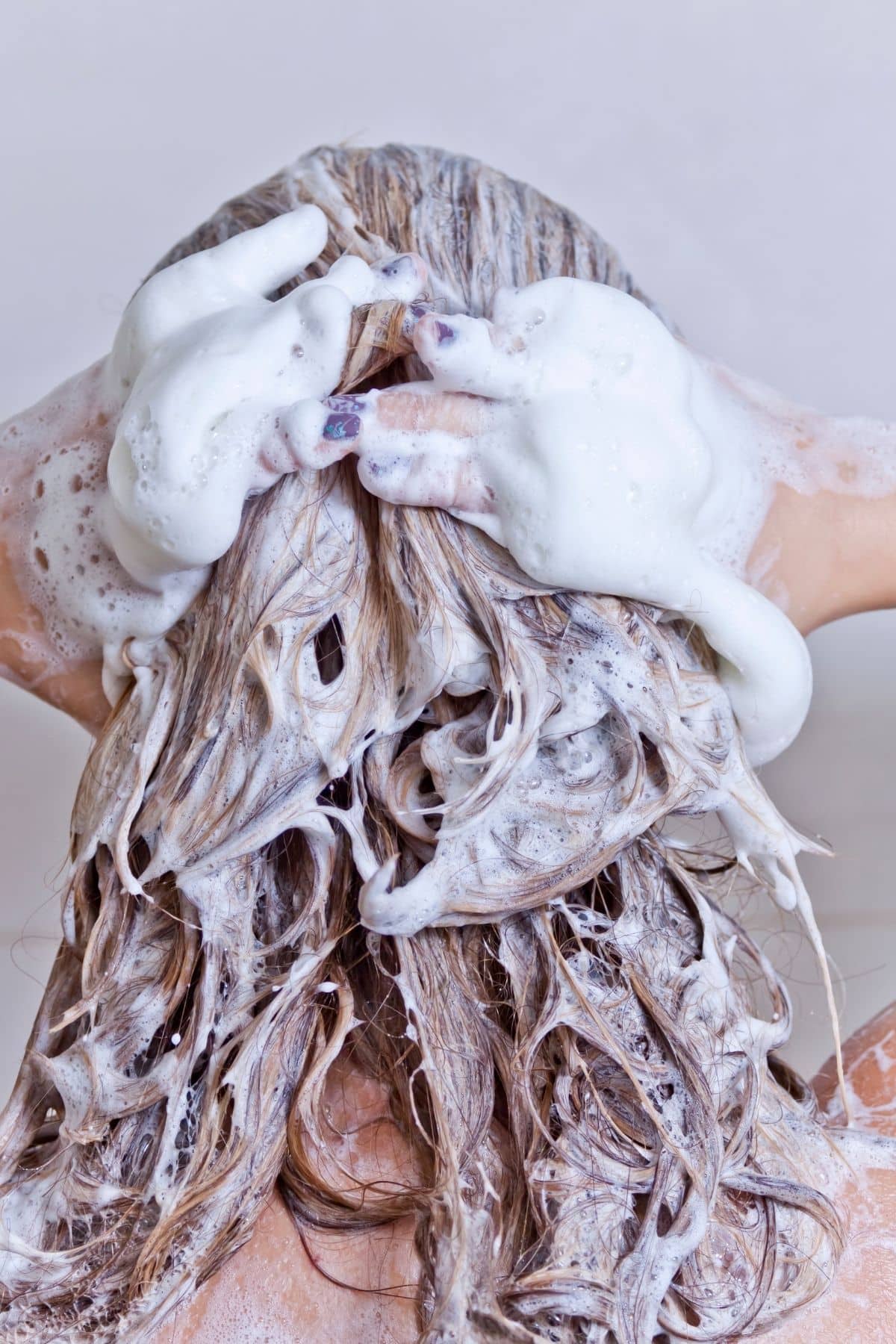
4. Eat foods rich in vitamin C
Vitamin C is a natural antihistamine, which means it can lower histamine levels and mitigate allergic reactions and symptoms.
To help reduce histamine naturally, consume plenty of non-citrus foods rich in Vitamin C like broccoli and cauliflower. Read more about what you can eat on a low-histamine diet. You may also want to consider a Vitamin C supplement.
Other vitamin C-rich foods that are low in histamine include:
- Blackberries
- Blueberries
- Bok choy
- Brussels sprouts
- Cabbage
- Kale
- Mango
- Sweet potato
- Watercress
See my full list of the best natural antihistamine foods.
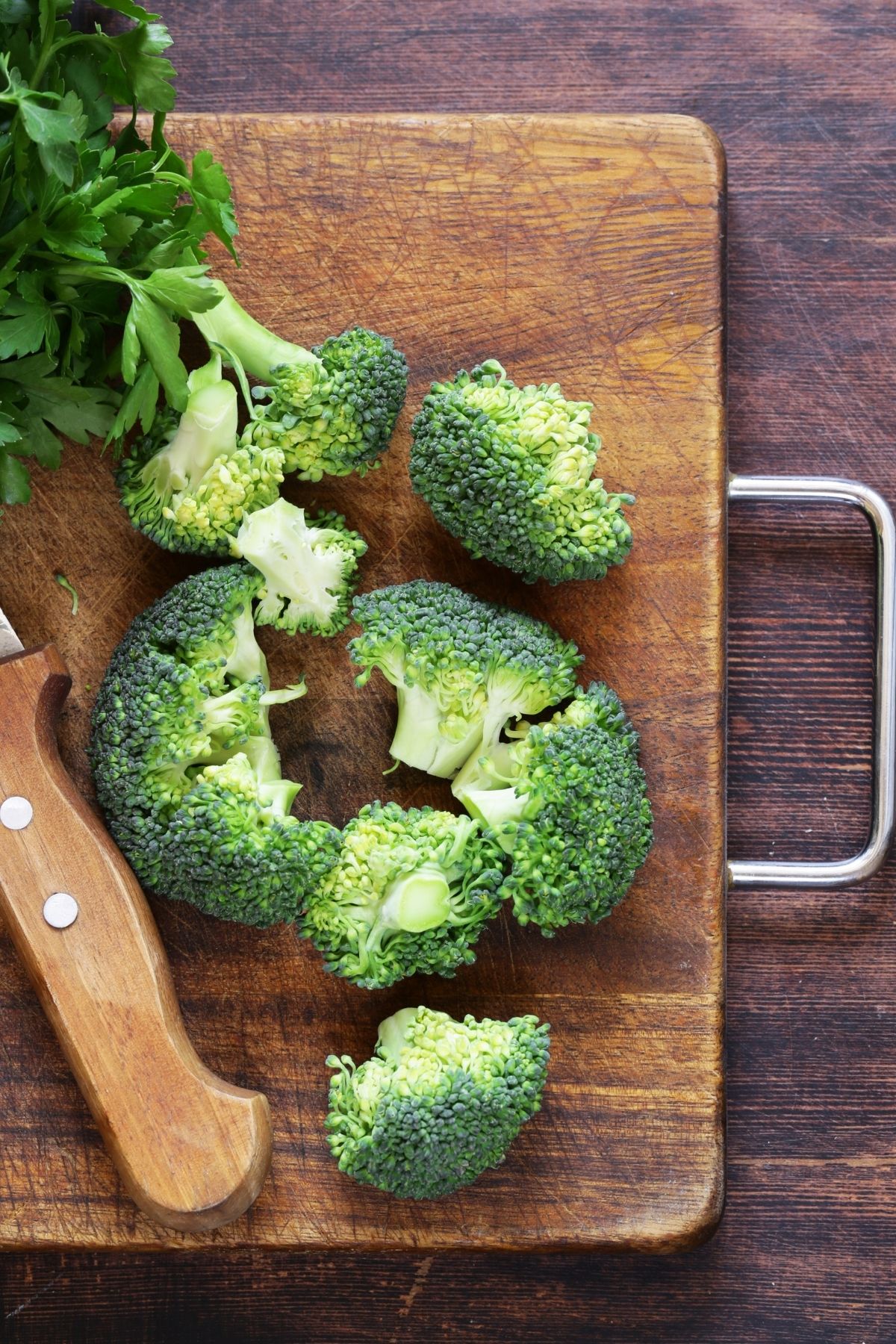
5. Take a probiotic
If your gut isn’t healthy, you’ll likely experience far more allergic reactions and develop elevated histamine levels. A strong gut lining and a diverse gut microbiome is essential for a healthy immune response, as around eighty percent of your immune system is in your gut.
Allergic reactions and constantly elevated histamine levels also damage your intestinal lining further, sometimes called leaky gut.
Taking a high-quality probiotic or eating foods with probiotics can do wonders for your gut health. A healthy gut will be able to manage excess histamine better and can lower your overall inflammatory response.
You may also want to check out my articles on the Best Gut Healing Foods and my Leaky Gut Diet if you are working on digestive issues.
6. Avoid high-histamine foods
Certain foods are higher in naturally-occurring histamines. Try eliminating high-histamine foods from your diet for at least thirty days to see if you notice an improvement in your symptoms (known as an elimination diet).
Avoid the high-histamine foods including aged or preserved meats such as smoked or cured meat, aged cheeses, fermented foods, and alcohol. Cocoa, certain nuts, avocado, banana, shellfish, tomatoes, citrus fruits, legumes, and strawberries are other foods high in naturally-occurring histamines that should be avoided.
In general, avoid packaged or canned products and turn to fresh foods. Histamine levels in foods can increase as they age, so it’s always ideal to cook fresh food daily when you’re battling histamine.
If you need recipe inspiration, be sure to check out my list of the best clean eating websites.
7. Take a natural antihistamine
You can turn to a natural antihistamine for relief if your symptoms are impeding your daily life. Look for herbal medicines or supplements that contain natural histamine blockers such as quercetin, turmeric, stinging nettle leaf, Vitamin D, or Vitamin C.
If all else fails, you can also consider taking DAO supplements when you are consuming foods with histamine or if your histamine intolerance symptoms persist.
Also, check out this list of the best antihistamine foods.
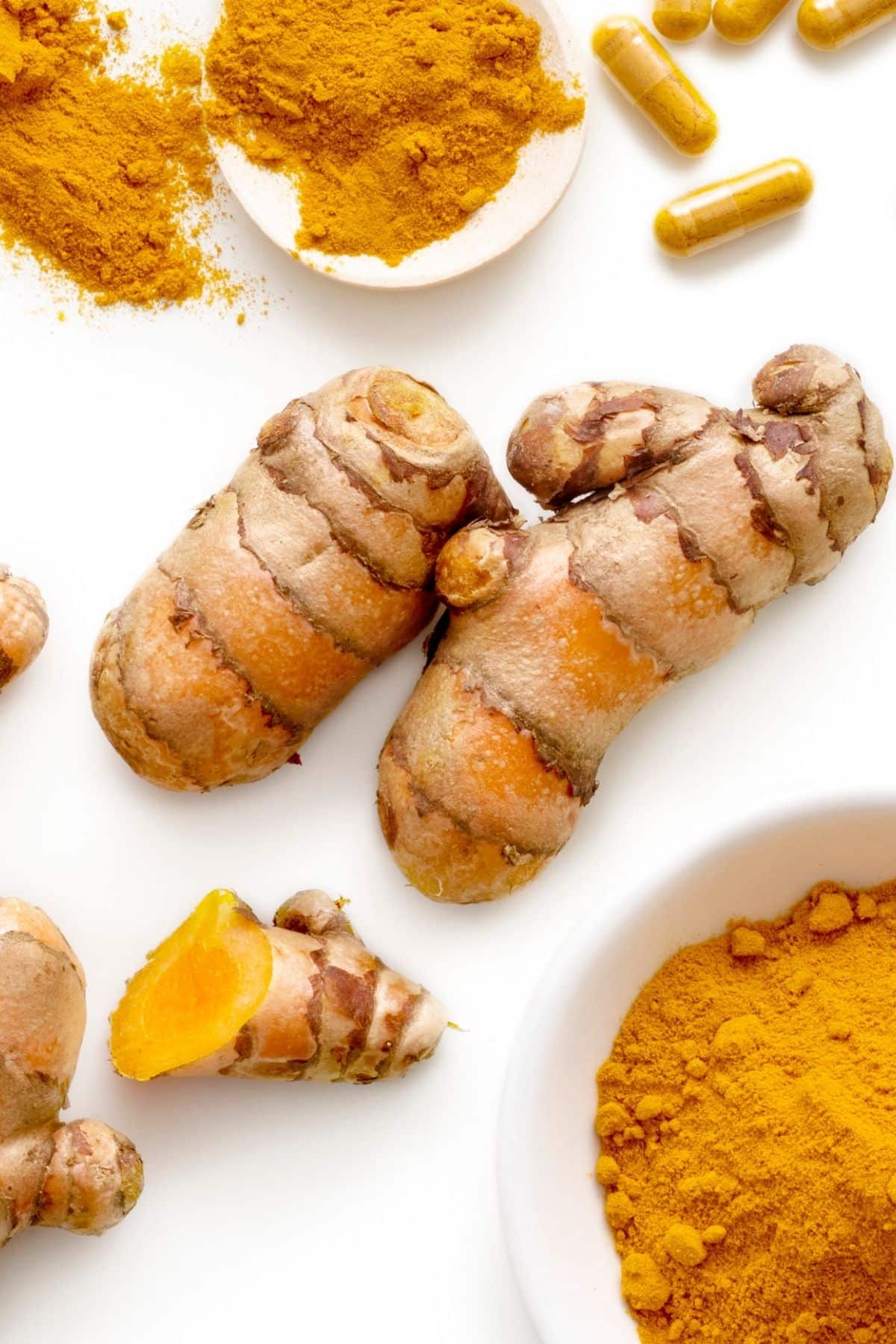
8. Try a neti pot to clear out sinuses
A neti pot is a great way to naturally support your body during allergy season. Neti pots irrigate your nasal passages (an ancient Ayurvedic tradition) to help clear debris such as pollen, dust, and excess mucus.
Occasionally clearing out irritating debris may allow you to breathe more easily and reduce nasal swelling.
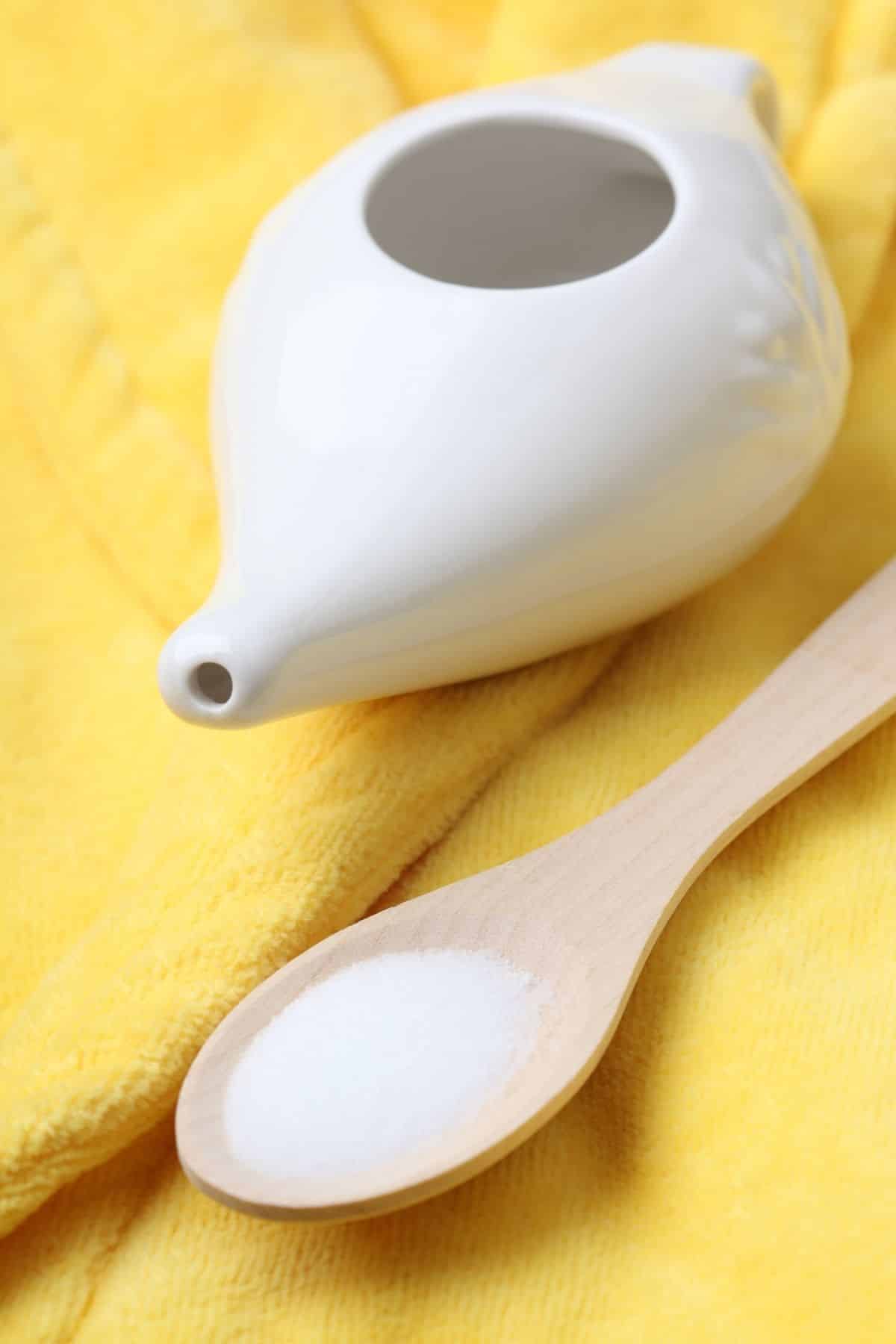
FAQs
Because histamine build-up can occur as a result of deficient DAO (diamine oxidase) levels, it’s important that you support your DAO levels in order to clear histamine from your body.
In addition to eating foods high in DAO co-factors like saturated fats, omega-3 fats, minerals, and B-vitamins, you can try taking a DAO supplement. Avoid DAO-blocking foods like caffeinated beverages and alcohol.
And, you might want to consider following a low histamine diet, avoiding environmental allergens, and focusing on gut healing to address the root cause of your histamine build-up.
There isn’t a set test for histamine intolerance. Skin prick tests only test for a histamine reaction to a specific allergen, not a consistent build up of histamine.
One way to test for histamine intolerance is by following a low histamine diet for at least thirty days, then slowly reintroduce high-histamine foods and monitor your symptoms.
If your symptoms reduce or disappear on a low-histamine diet but reappear after incorporating high-histamine foods, you likely have histamine intolerance.
This will depend on how aggressive you are about clearing histamine from your system.
If you are following a low-histamine diet, supporting your DAO levels, and avoiding environmental allergens, your histamine levels should begin noticeably lowering in a short period of time, maybe even in less than 24 hours.
If you continue to ingest high histamine foods and take in environmental allergens, your histamine levels will remain elevated.
This will depend on your individual hormone levels, but yes–hormones can influence your histamine levels.
Mast cells store and produce histamines, but they also have estrogen receptor sites. This means that estrogen can cause the production and release of histamine; it also decreases DAO levels, so estrogen can certainly cause higher histamine levels.
Progesterone naturally lowers histamine levels, so if you have estrogen dominance (and thus, lower progesterone) you’ll have higher histamine levels. Read more about how to naturally reverse estrogen dominance.
There are some anecdotal reports that collagen may increase histamine. Learn more about collagen protein side effects and consider avoiding it if you are having histamine issues.
More Holistic Health Articles You Might Like
Conclusions
High histamine levels can cause unpleasant symptoms that can disrupt your quality of life. Consider trying natural ways to lower your histamine levels to see if your symptoms improve.
Don’t forget to join my newsletter list to get exclusive clean eating recipes and tips. The newsletter is 100% free with no spam; unsubscribe anytime.
Note: this post is for informational purposes only and is not intended as medical advice. Please consult your healthcare provider for recommendations related to your individual situation.
About the Author: Carrie Forrest has a master’s degree in public health with a specialty in nutrition. She is a top wellness and food blogger with over 5 million annual visitors to her site. Carrie has an incredible story of recovery from chronic illness and is passionate about helping other women transform their health. Send Carrie a message through her contact form.


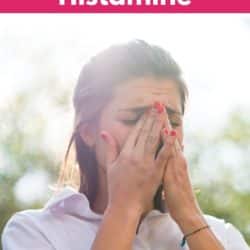
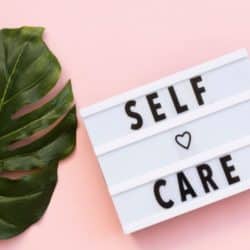


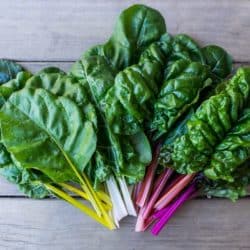





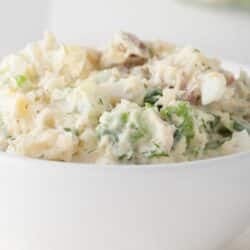
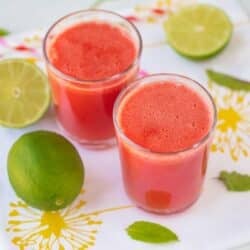
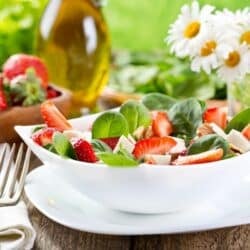



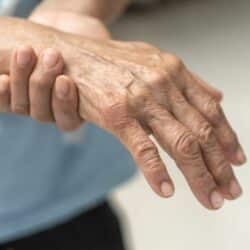
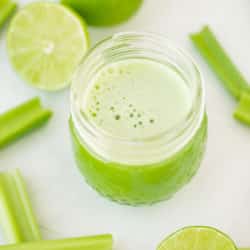



It looks like one should eat food like saur kraut or kimchi for its probiotic benefit, but should avoid them because of their high histamine content? Which is more important?
It depends on the person. Maybe try 1 teaspoon a day of either food to see if it is tolerable and then increase as gut health and histamine tolerance improves.
On this page: https://www.cleaneatingkitchen.com/natural-ways-to-lower-histamine/ you give a link to probiotic foods but these foods are not allowed on a low histamine diet so should not be used to lower histamine?
Thanks,
C
People who are trying to avoid high histamine foods should avoid most fermented products. But, prebiotic foods with fibers should be okay. And, some mildly fermented foods might be tolerable. Please consult with your healthcare provider for more info.
I dont really understand why you recommend fermented food to histamine intolerant people? Sauerkraut is sighi 3. And soy beans are not good either?
What would you say is a good source for omega 3 for histamine intolerant people? Don’t dare eat seafood.
Thank you.
Please re-read the article. It says to avoid high histamine foods like fermented foods. Try an algae-based omega-3 supplement to avoid a marine option.